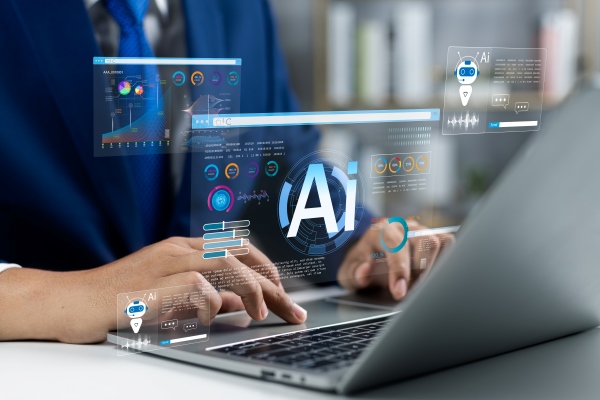Tech Virtual Assistants (VAs) are remote workers who specialise in performing technical tasks for businesses, ranging from IT support and data management to software development and digital marketing. Traditionally, VAs have been crucial in handling administrative duties, but the advent of technology has expanded their roles to more complex, technical responsibilities. Artificial Intelligence (AI) has rapidly integrated into various industries, revolutionising workflows and significantly boosting productivity. This article will explore how AI is enhancing the capabilities and effectiveness of tech VAs, making them more efficient, enabling better decision-making, and ultimately transforming the way businesses operate.
The Evolving Role of Tech VAs
The role of VAs has evolved significantly from primarily handling administrative tasks to now encompassing technical and specialised roles. This transition has been driven by the growing complexity and digitalisation of business operations, requiring more sophisticated support. Today, tech VAs are integral in areas such as IT support, data analysis, software development, and digital marketing. Their ability to perform these specialised tasks remotely makes them invaluable assets in the modern business landscape. Tech VAs not only enhance operational efficiency but also provide businesses with the flexibility to scale their technical capabilities without the overhead of full-time staff.
AI Tools Empowering Tech VAs

AI-driven tools and software have revolutionised the way tech VAs perform their tasks, significantly enhancing their efficiency and capabilities. These tools include AI-based project management systems that streamline workflow and optimise task allocation, ensuring projects are completed on time and within budget. AI-powered customer service platforms enable tech VAs to provide instant, personalised support, improving customer satisfaction. Automated data analysis and reporting tools allow VAs to quickly process vast amounts of data, generating valuable insights and actionable reports. These AI innovations empower tech VAs to deliver higher quality work, manage multiple tasks seamlessly, and contribute more strategically to business success.
Increased Efficiency and Productivity
AI significantly boosts the efficiency and productivity of tech VAs by reducing repetitive and mundane tasks. Through automation, AI handles routine technical tasks such as coding assistance, data entry, and basic IT support, freeing up VAs to focus on more complex and value-added activities. This automation not only accelerates task completion but also minimises errors, ensuring higher accuracy. AI enhances multi-tasking capabilities by seamlessly managing and prioritising tasks, thus improving time management. Tech VAs can now oversee multiple projects simultaneously with ease, leading to a more organised workflow and the ability to meet tight deadlines, ultimately benefiting overall business performance.
Improved Decision-Making and Problem-Solving
Advanced AI algorithms can analyse vast amounts of data, identifying patterns and trends that might be missed by human analysis. These insights enable tech VAs to make more informed, strategic decisions quickly. Additionally, AI-powered analytics tools enhance problem-solving capabilities by offering predictive analyses and real-time data visualisation, which help VAs anticipate potential issues and devise effective solutions. By leveraging AI, tech VAs can address complex challenges more efficiently, contributing to more proactive and innovative business strategies.
Enhanced Communication and Collaboration

AI tools are revolutionising communication and collaboration between tech VAs and their clients. AI-driven features in collaboration platforms like Slack and Microsoft Teams facilitate real-time communication, streamline workflows, and improve project management. These tools can automate meeting scheduling, provide intelligent reminders, and even summarise discussions, ensuring everyone stays on the same page. The impact on remote working dynamics is profound, as AI enhances team cohesion by fostering seamless interaction regardless of geographical location. By breaking down communication barriers, AI enables tech VAs to work more effectively with their clients and colleagues, enhancing overall productivity and fostering a collaborative work environment.
Challenges and Ethical Considerations
Adapting to AI tools presents several challenges for tech VAs, including the steep learning curve associated with new technologies and the need for continuous upskilling. Ethical considerations are paramount in AI integration, with data privacy being a significant concern. Ensuring that AI systems handle sensitive information securely is crucial to maintaining client trust. Additionally, the potential for job displacement due to automation raises ethical questions about the future workforce. Balancing AI automation with the human touch is essential, as tech VAs must retain the ability to provide personalised, empathetic service that AI alone cannot replicate, ensuring a harmonious and ethical integration of technology.
In summary, AI is significantly transforming the tech VA industry by enhancing efficiency, productivity, and decision-making capabilities. We’ve discussed how AI-driven tools empower tech VAs, streamline communication and collaboration, and offer opportunities for skill development. Despite challenges and ethical considerations, the integration of AI presents immense potential for the industry. AI’s impact on the tech VA industry is profound, driving innovation and enabling VAs to take on more complex and value-added tasks. Embracing AI allows tech VAs and businesses to unlock new potentials, fostering a more dynamic, responsive, and efficient working environment that is well-equipped for future challenges.

